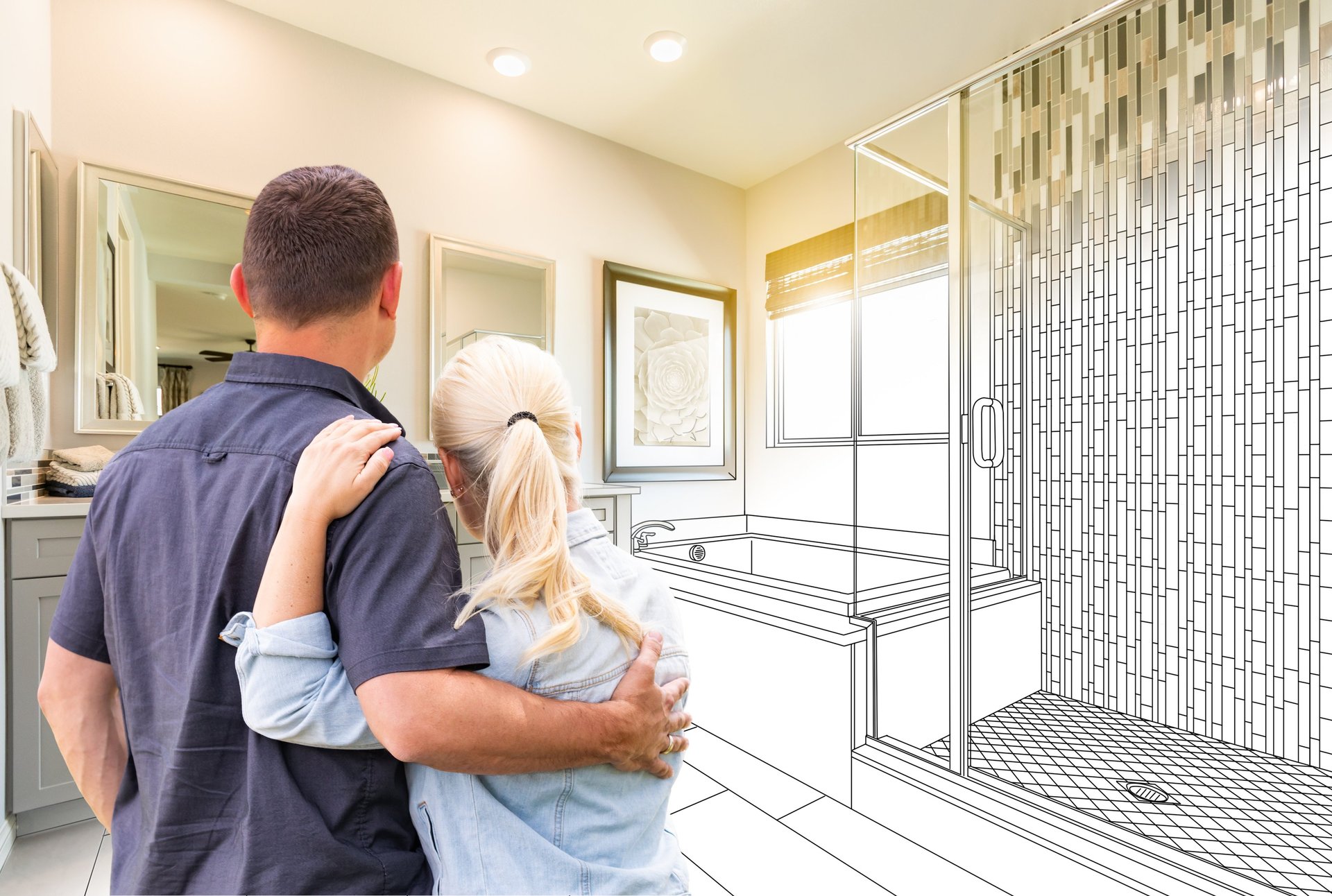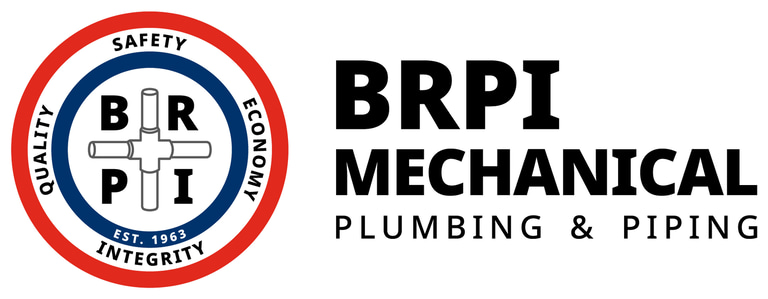Building or Remodeling? Here’s How to Find a Plumber Who Won’t Cut Corners or Pad the Bill
COST-SAVING PLUMBING TIPSRESIDENTIAL PLUMBINGFAQSPREVENTIVE PLUMBING TIPS
7/9/20255 min read


So, you’re ready to build that custom kitchen, finish your basement, or finally turn your 1980s bathroom into something that doesn’t feel haunted. Congrats! But before you get lost in paint swatches and Pinterest boards, there’s one decision that can make or break your whole project: your plumber.
Because behind every dreamy backsplash is a spiderweb of copper, PEX, drains, vents, shutoffs, and more. And if the plumber you hire cuts corners, doesn’t show up when they say they will, or charges like you’re funding their kid’s out-of-state tuition, guess who’s left holding the wrench? You.
Let’s break down how to find a plumber who won’t overcharge, under-deliver, or disappear mid-job. Buckle up.
🧰 1. Know What You’re Actually Hiring For
First, let’s define the job. Are you updating a small kitchen without moving plumbing lines? Moving a water heater across the room in a split-level house? Finishing a basement where nothing’s been roughed in yet?
The scope matters.
New construction plumbing is all about installing a full plumbing system from scratch. Think rough-ins, main lines, and fixture installation.
Remodel plumbing usually involves demo work, rerouting pipes, replacing outdated plumbing, and making everything work with new cabinetry, walls, or layouts.
Not all plumbers are created equal here. A service plumber who’s great at fixing leaks may not be your best bet for handling a full remodel. Look for someone who specializes in construction or remodeling—not just repairs.
Pro Tip: Say, “From your perspective, what’s not ideal about this setup?” If they claim it’s flawless, be skeptical.
🕵️ 2. Check the License—And Then Double-Check It
We hate to break it to you, but there are “plumbers” out there working without a license. Or they’re working under someone else’s license. Or their license expired in 2009 and they “just haven’t had time to renew it.”
In Utah, all plumbers working on construction and remodel jobs must be licensed and work for a licensed contractor. No exceptions. That means:
Apprentices must be directly supervised.
Journeymen must be licensed and typically work under a master.
Contractors need a Utah contractor’s license and insurance.
You can check licenses through the Utah Division of Occupational and Professional Licensing. Search the name, look for active status, and make sure the license class fits your project.
Red Flag: If they dodge questions about their license or say “Let’s not get too caught up in paperwork,” stop. Just stop.
💸 3. Watch Out for the “Lowball and Switch”
Some plumbers will come in low—really low—on the initial estimate. It feels like a win. You’re already dreaming of how you’ll use the money you saved. Then the change orders start.
“Oh, we didn’t include venting the water heater.”
“Oh, you wanted those fixtures?”
“Oh, turns out your main is 3 inches, not 2.”
Suddenly you’re paying more than the next three bids combined.
To avoid that, ask for a detailed bid that includes all of the following:
Fixture counts and types
Lineal footage of pipe
Scope of demo or rerouting
Permit costs (if any)
Hourly rates for unforeseen issues
Almost there! But then—here’s the kicker—compare apples to apples. If one bid is half the others, it’s either missing something or they’re planning to hit you with change orders later.
🧾 4. Get Everything in Writing (No, Really. Everything.)
Verbal promises in construction are like unicorns: magical, mysterious, and totally unreliable.
If your plumber says, “Don’t worry, I got you,” that’s not a contract. That’s wishful thinking. Here’s what your written agreement should include:
Start and end dates
Scope of work
Payment schedule
Materials provided
Warranty info
Important: You’ll want this spelled out in plain English, not “contractor code.” If it feels vague or you’re told “We’ll sort it out later,” run.
🧱 5. Ask What (and Who) They Subcontract To
This is where things start to get spicy. Some plumbers handle every inch of pipe themselves. Others offload parts of the job—like running gas lines, tying in boilers, or even basic fixture installs—to subcontractors.
Now, subcontracting isn’t necessarily sketchy. But if someone else is doing the work, here’s what you’d better know:
Who are they?
Are they licensed and insured?
Are they reliable?
Otherwise, you’re playing subcontractor roulette. You don’t want to be stuck in the middle of a “he said, she said” plumbing blame game.
What to Ask: “Do you do all the work yourself, or will any part of it be subcontracted out? Who’s making sure it’s done right?”
🪚 6. Look for Clean Installs and Solid Craftsmanship
Time to channel your inner HGTV judge. Look at photos of their work—and don’t just zoom in on the pretty faucet.
Look for these signs of quality:
Straight, level pipes (no sad spaghetti lines)
Strapped and secured plumbing—not saggy or floating
Fixtures that fit tightly and cleanly
No flex connectors where there should be hard pipe
You’re not just hiring someone to “make it work.” You want it to work well—and look good doing it.
Even better: Ask if they’ve worked on homes like yours, whether it’s with tricky crawlspaces in Rose Park or old galvanized piping in East Millcreek. A plumber who’s been in the trenches of your kind of home brings more than a wrench—they bring real-world knowledge.
🔎 7. Ask About Planning, Not Just Plumbing
Here’s what separates the rookies from the pros: planning.
Anyone can install a sink. But not everyone will think ahead far enough to say, “If you don’t leave 6 inches here, the cabinet door won’t open.”
Great plumbers are part-plumber, part-project manager. This is what they know:
How long trades need to space out
Whether your soffit plan is hiding a major drain run
How to work around existing framing without wrecking it
You want someone who plays nice with the electrician, the HVAC guy, and even your tile installer.
Question Time: Ask how they coordinate with other trades—and whether they’ve done multi-phase builds before.
👀 8. Vet Them Like You’d Vet a Babysitter
You wouldn’t hire someone to watch your kids without references, right? Same goes here.
Your plumber will be in your house, probably while you’re at work. So read the reviews—and not just the star ratings.
Look for this:
“They showed up every day at 7:01 like clockwork.”
“They covered everything with drop cloths.”
“They called when they hit a snag.”
“They cleaned up like they were never there.”
That’s the kind of praise you want to see.
When to Watch Out: If it’s all “Quick and cheap!” with no details? That’s a red flag disguised as a compliment.
📅 9. Ask About Timeline and Availability
This one sneaks up on people. You plan out every fixture and finish—only to find your plumber can’t start for six weeks, or ghosts you halfway through.
Here’s what to ask:
“What’s your availability?”
“How long will this take?”
“Do you work consecutive days, or jump between jobs?”
Bonus: A solid plumber won’t overpromise. If they say, “I could maybe squeeze it in,” that’s not a yes. It’s code for “Your project’s getting bumped.”
‼️ 10. Pay Attention
Even if everything looks great on paper—solid license, great reviews, good price—you still need to keep your eyes open.
Walk the job every day.
Ask questions.
Snap photos.
Bottom Line: You don’t need to hover, but you do need to stay present. A good plumber won’t mind you asking questions. A shady one will.
🔍 Final Thoughts: Look Beyond the Toolbox
The best plumbers aren’t just good with pipe wrenches—they’re part detective, part therapist, part escape-room master. They know how to troubleshoot 1960s layouts, reroute around mystery beams, and translate your “I want it to feel spa-like but not too modern” into real-world plumbing.
Whether you’re gutting a Sugar House bungalow, building your dream home in Herriman, or retrofitting a quirky Murray workshop, ask the right questions, check the license, and don’t ignore your gut.
Because when the tile’s in, the drywall’s patched, and the inspector signs off, you don’t want to be left wondering what’s buried in the walls. You want to be kicking off your shoes, cracking open a soda, and finally enjoying the space you’ve invested in—knowing the plumbing underneath is solid, smart, and done right the first time.
Contact
Main Office
Social
3560 S 2200 W
West Valley City, UT 84119
P.O. Box 25123
Salt Lake City, UT 84125
Monday – Friday:
7:00 am – 3:30 pm
Billing & Mailing Address
Hours
© Budd M. Rich Plumbing Company, DBA BRPI Mechanical. All rights reserved.
